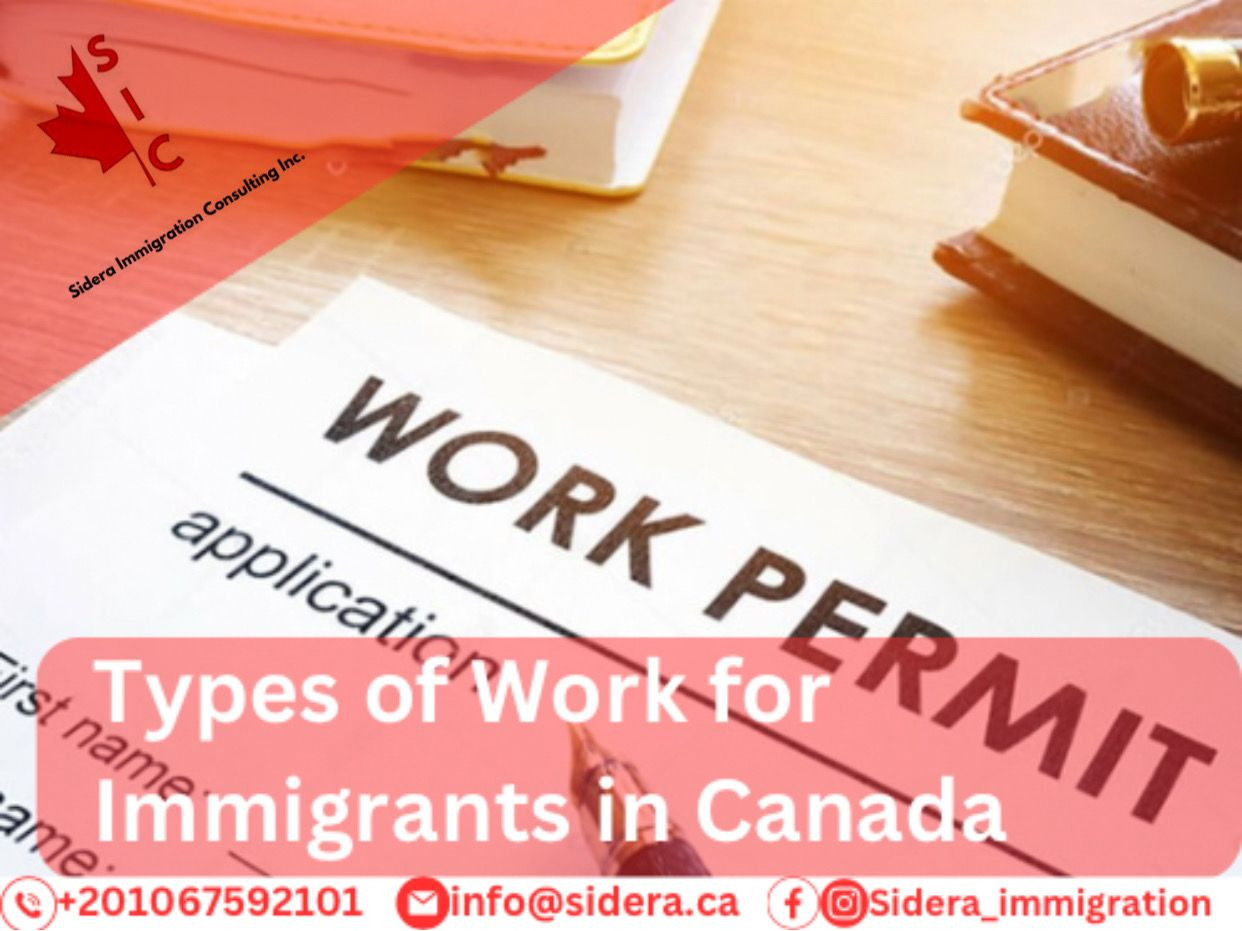

 102 El Merghany Street,Heliopolis,Cairo, Egypt 4th Floor, Office# 401
102 El Merghany Street,Heliopolis,Cairo, Egypt 4th Floor, Office# 401
 1555 Boulevard de l'Avenir, Bureau 306,H7S 2N5, Laval, Québec, Canada
1555 Boulevard de l'Avenir, Bureau 306,H7S 2N5, Laval, Québec, Canada

2024-01-28
Canada, renowned for its breathtaking landscapes, diverse culture, and welcoming atmosphere, stands as one of the top choices for immigrants seeking new opportunities, for those aspiring to build their careers in the Great White North, understanding the various types of work permits available is crucial. In this article, we will delve into the key work permits that open doors to employment and growth in Canada.
Canada's commitment to welcoming immigrants and fostering a diverse and inclusive society is reflected in its array of work permit options. Whether you are a skilled professional, an international student, or seeking to join a family member in Canada, there's likely a work permit that aligns with your goals.
The Temporary Work Permit is designed for individuals who plan to work in Canada for a specific period. This permit is suitable for a wide range of job categories, including skilled workers, professionals, and agricultural workers. Applicants are often required to have a job offer from a Canadian employer before applying.
The Open Work Permit is unique in that it allows immigrants to work for any Canadian employer, excluding those with poor labor practices. This flexibility is particularly beneficial for spouses or common-law partners of certain work or study permit holders, refugees, and individuals on humanitarian grounds.
International students who have completed a program of study at a designated learning institution in Canada may be eligible for the Post-Graduation Work Permit. This permit allows them to work in Canada and gain valuable Canadian work experience for a duration equivalent to the length of their study program, up to a maximum of three years.
The LMIA is a critical factor in obtaining a work permit for many applicants. Canadian employers must usually obtain an LMIA to demonstrate that hiring a foreign worker will have a positive impact on the local labor market. Once a positive LMIA is secured, the applicant can apply for a work permit.
The IMP encompasses various work permit categories, including those under international agreements, reciprocal employment, and other programs that facilitate the hiring of foreign workers without the need for an LMIA. Individuals applying through the IMP benefit from simplified processes and reduced processing times.
Before embarking on your journey to Canada, it is essential to research the specific requirements and eligibility criteria associated with each type of work permit. Consulting with immigration professionals and staying updated on policy changes will ensure a smoother transition and increase your chances of success in the Canadian job market.
By understanding the types of work permits available in Canada, immigrants can make informed decisions and embark on a fulfilling career journey in one of the most welcoming countries in the world.